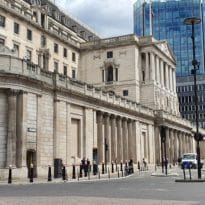David Hambidge, co-head of Multi Manager Funds, Premier Miton Investors, considers the outlook for the US, UK and Europe, equities and bonds, and warns investors not to forget the part that dividends play in investment performance.
Any lingering hopes that the Federal Reserve would commence its rate cutting cycle appear to have been dashed following the release of the latest US inflation data, hot on the heels of another strong jobs report. The inflation numbers were stronger than economists had forecast for the third consecutive month and US treasury prices fell sharply at both the short and long end as investors demanded higher yields in compensation for rising prices.
In the UK and Eurozone, inflation data has been more encouraging and with the economic growth this side of the pond far more subdued than the US, it is looking increasingly likely that the ECB and the Bank of England will move before the Fed, probably this summer. Unusual as this would be.
Irrespective of the timing of rate cuts, it is highly likely that monetary policy is going to remain tighter in 2024 than markets were pricing in at the start of the year. Each central bank has made it clear time and again that defeating inflation remains their number one priority and any decision will be ‘data dependent’. And so far the data hasn’t justified a cut with inflation still above the 2% target and labour and wage data still too hot for comfort. The main difference between the US and Europe (and UK) is that the former continues to deliver strong economic growth while over here, there is hardly any growth at all.
Given the higher for longer scenario it is surprising how well equities have performed over the first quarter. The US market has once again produced some of the strongest numbers although returns excluding the ‘Magnificent Seven’ (maybe now six following Tesla’s recent sharp share price decline) have been more pedestrian.
One market that has once again started to attract investors attention is Japan. The country has had a deflation problem for decades and unlike many other central banks, the Bank of Japan welcomes higher prices. However, the main driver of higher share prices is ongoing corporate reform including more shareholder friendly policies.
Turning to the UK, a decent rebound in March pulled stocks higher for the quarter although frustratingly for those like us who have a decent weighting, the index again lagged global peers. The UK stock market remains very cheap in our view and under owned while also offering an attractive yield. In an era where it appears to be all about growth (and get rich quick), so many seem to have forgotten about the importance of dividends when looking at the total return of equities over the last 100+ years.
While equities have more than coped with higher for longer monetary policy, the same cannot be said for government bonds, which despite plenty of yield support, have struggled over the last few months. After such an awful couple of years, you would be forgiven for thinking that 2024 would be somewhat better and it may well be in the end, but we have been served a timely reminder that one thing that conventional government debt doesn’t like is high inflation.
Corporate credit has performed somewhat better as spreads have tightened, with high yield (which generally is shorter dated) performing better than investment grade bonds. We continue to believe that a diversified portfolio of long, short, and floating rate debt is the right strategy for the time being and this has certainly been helpful since the start of the year.
One area that continues to be a drag on overall returns is UK commercial property. This is perhaps not a surprise given the lack of interest rate cuts following very strong returns for the asset class in Q4 last year. We will be maintaining our weighting with a focus on structural growth areas such as primary healthcare, student accommodation and care homes. Not only do these assets offer very attractive yields but also the prospect of dividend growth. We believe that ultimately this will lead to a strong recovery in their share prices with lower interest rates being a likely catalyst. In the meantime, we continue to be ‘paid to wait’.
This information should not be relied upon by retail clients or investment professionals. The views provided are those of the author at the time of writing and do not constitute advice. These views are subject to change and do not necessarily reflect the views of Premier Miton Investors. The value of investments may fluctuate which will cause fund prices to fall as well as rise and investors may not get back the original amount invested.
Reference to any particular investment does not constitute a recommendation to buy or sell the investment. Past performance is not a reliable indicator of future returns.






























